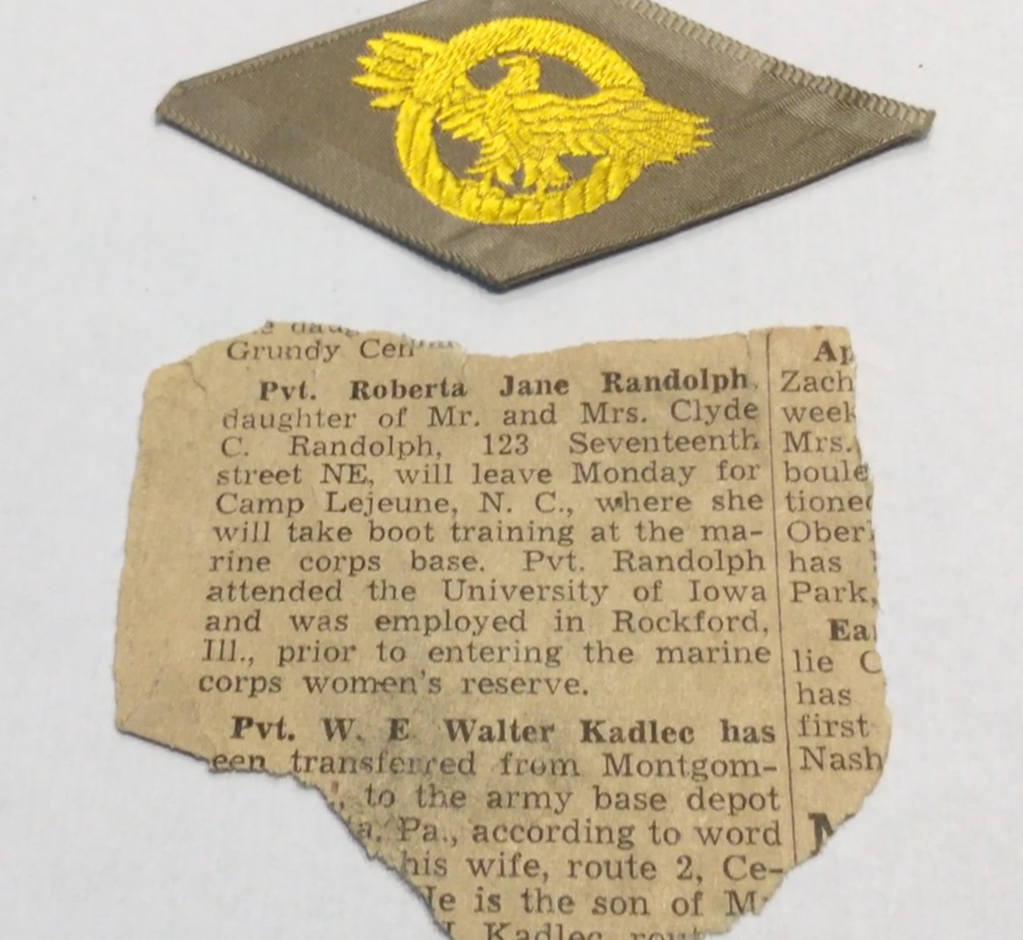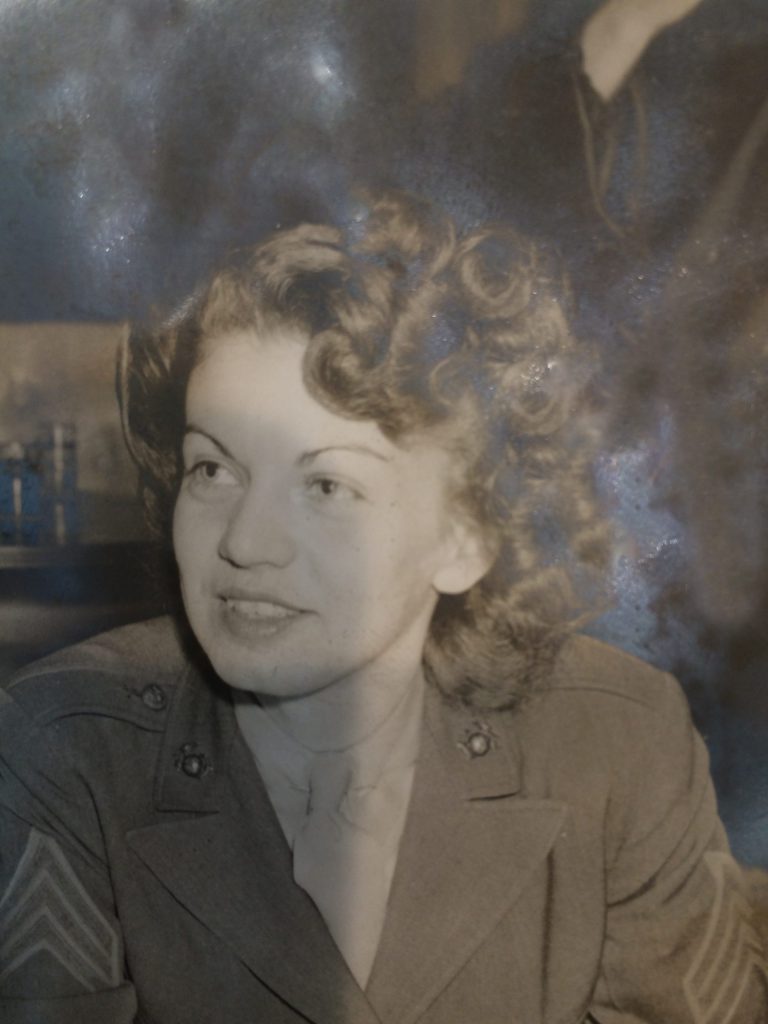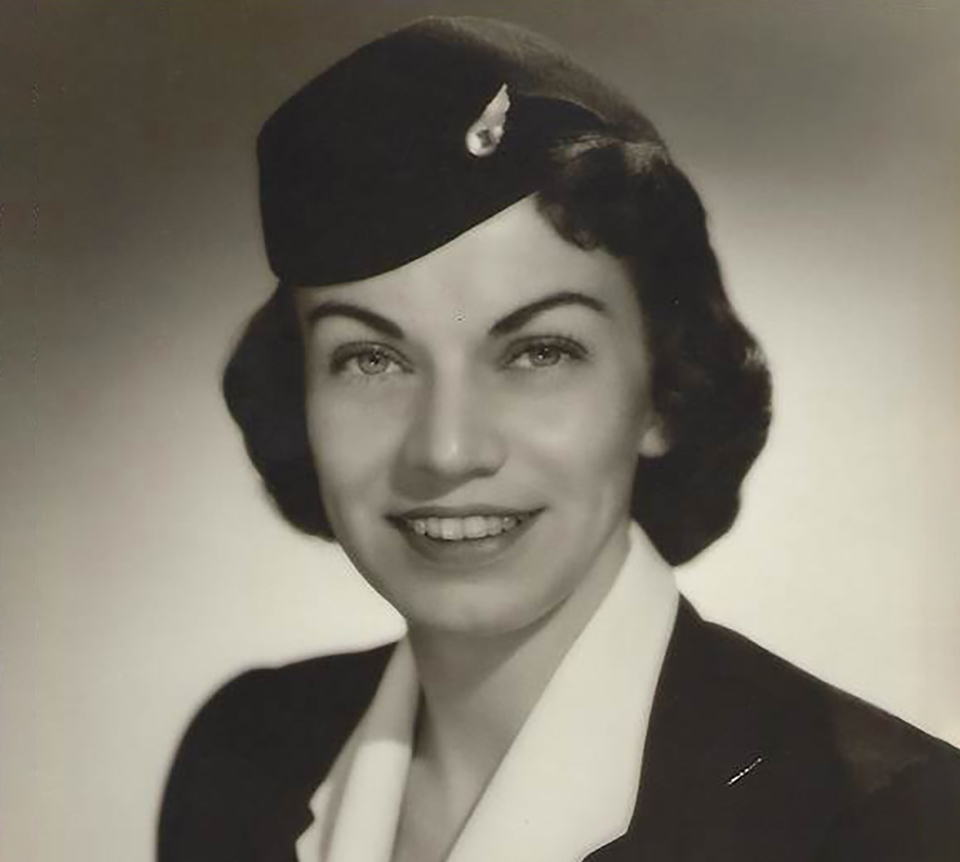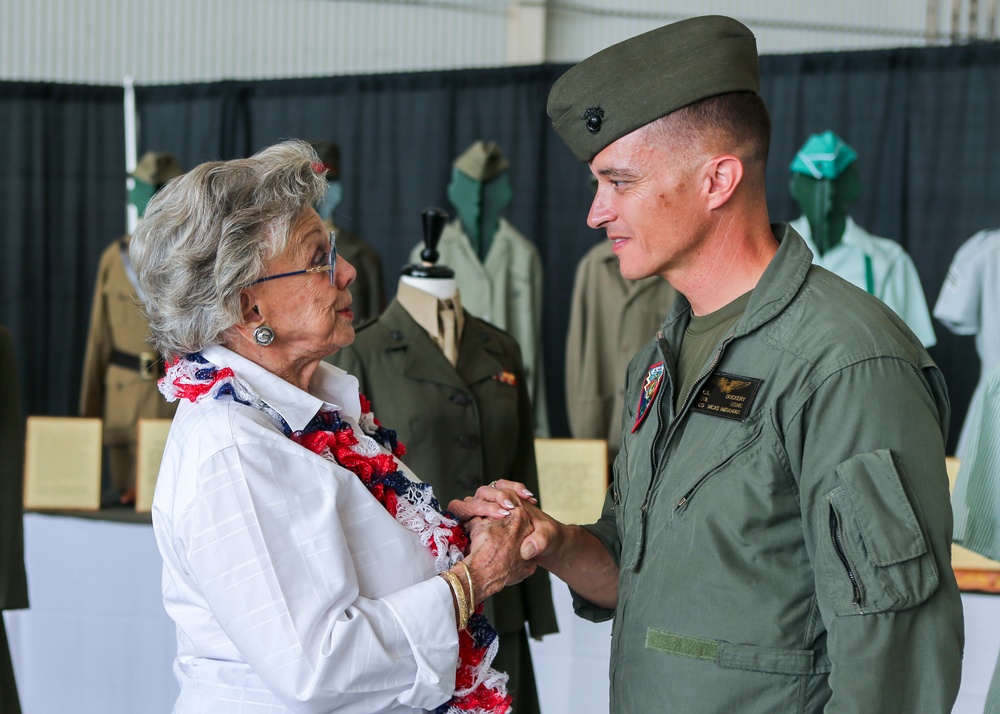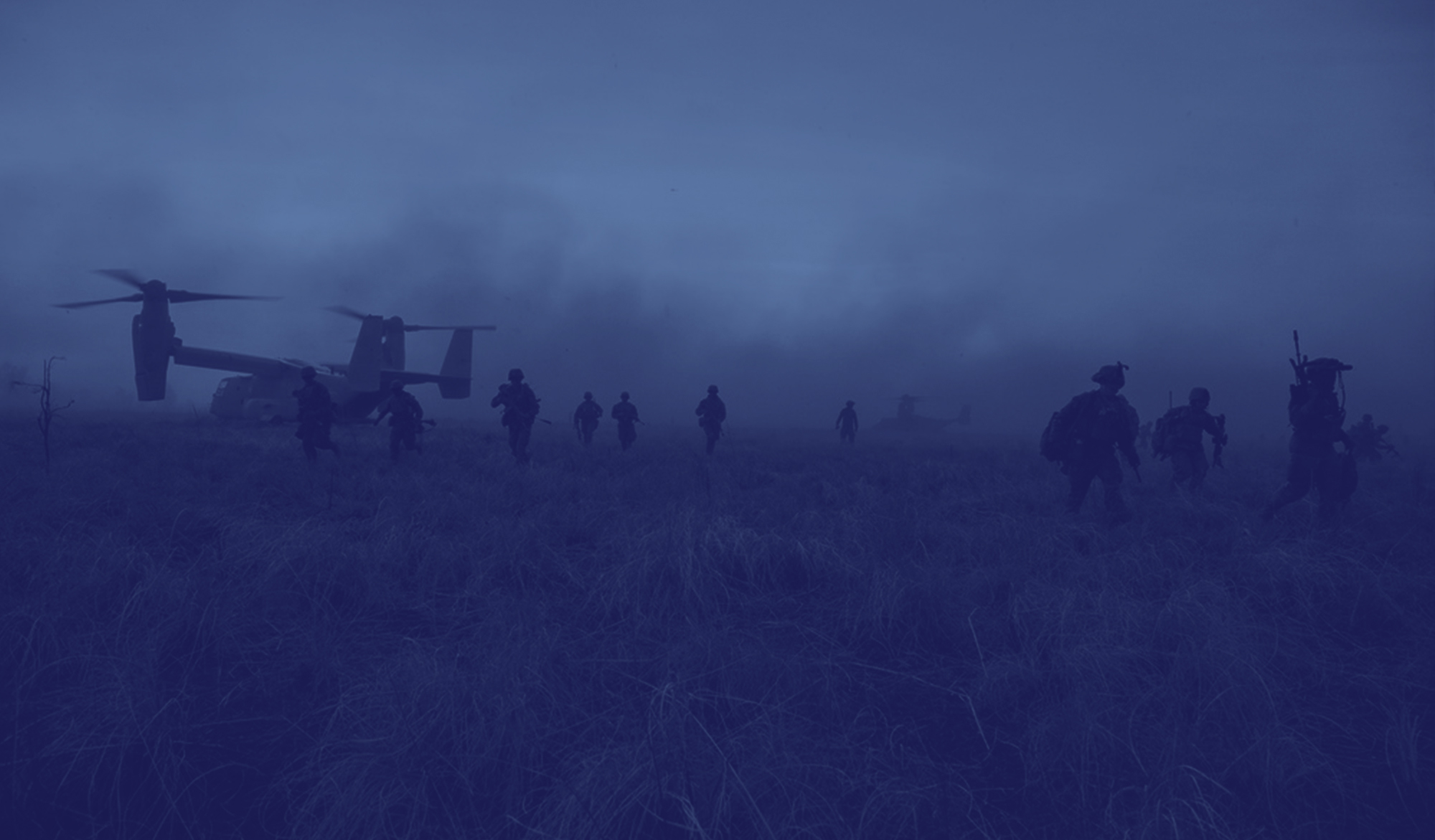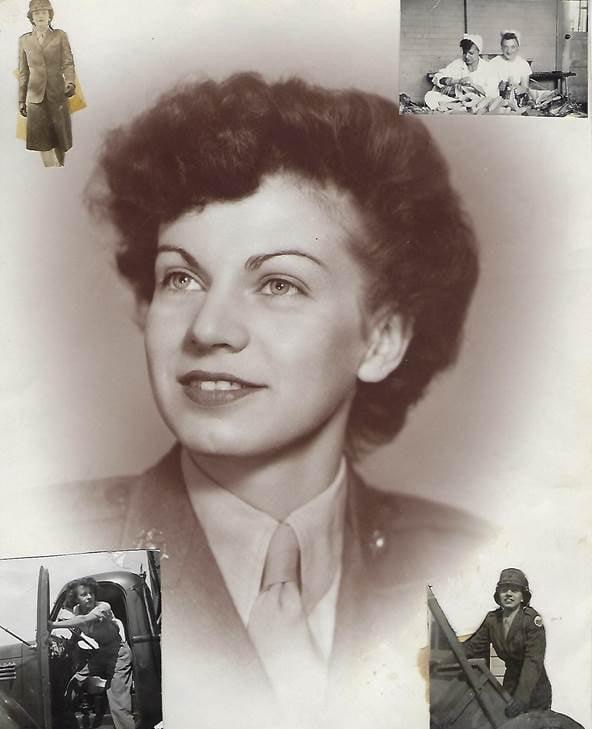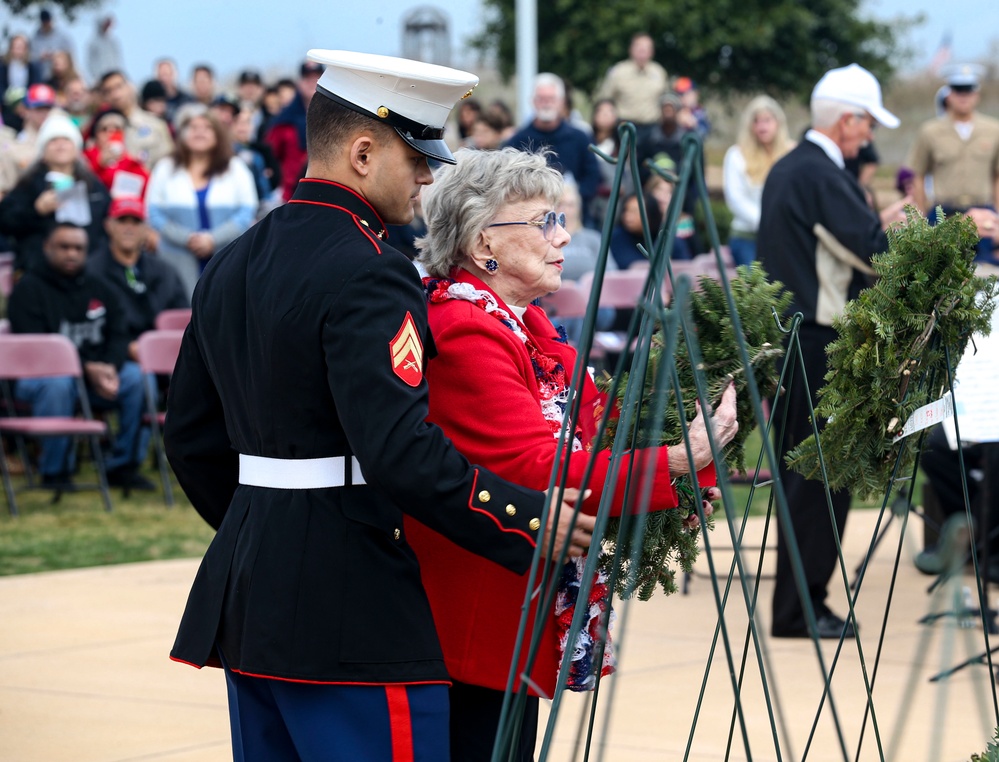
Roberta “Randy” Tidmore
Randy was one of 18,000 women who joined the Marines by that year. While comprising just 4 percent of the Marines, women worked as clerks, mechanics, and aerial gunnery instructors, among other jobs, and they helped pave the way for more than 1 million women who have since served in the U.S. military.
Roberta “Randy” Jane Randolph was born in March of 1922 in Cedar Rapids, Iowa, to Clyde and Laura (Mildenstein) Randolph.
Randy entered a five-year dual-degree (B.S./R.N.) nursing program at the University of Iowa, where she became close with three other girls in her dorm. After two years of liberal arts studies, she began classes at the nursing school. But she would only stay there for one year.
By 1943, everyone around her was doing something to support the war effort. She and her best friends wanted to be part of it, and the four decided to become Rosies together, moving to Rockford, Illinois, to work at the J.I. Case Company, a farm equipment manufacturer that was producing airplane parts for the war. Randy worked on B-26 wings for six months before enlisting in the Marine Corps in Chicago alongside one of her closest friends, Mo.
During boot camp, the women lived in the Camp Lejeune barracks. The gunnery sergeant woke them each morning so they could put on their dungarees and boondockers for pre-breakfast calisthenics. Afterwards, they cleaned up and changed into shirts and ties for marching.
In the classroom, the women learned about logistics: “I could tell you every airplane that was flying at the time,” she says. Outside, they learned to crawl under barbed wire, don gas masks and carry unloaded guns. After graduating from boot camp in April 1944, Randy went to motor transport school, where she learned to drive trucks, change spark plugs and back up trailers. She also discovered a lifelong love of driving.
Her first assignment was at Quantico, Virginia, where she drove staff cars and sometimes chauffeured officers to restaurants in Washington, D.C. She also drove a garbage truck around Quantico, while two men in the back lifted the cans. That detail offered her a rare chance to work with African-American service members at a time when the armed services were still segregated. During breaks, the three would sit together on the tailgate, eating doughnuts.
Her garbage truck assignment was soon cut short when she inadvertently crossed an intersection without yielding to a general’s marked car. As punishment, she was reassigned to the mess for two months, washing dishes in the scullery and then operating an industrial potato peeler. Then, for the next nine months, she swept Quantico’s streets with a push broom. She later went on to duty in CA. When the war ended, Randy was reassigned to San Francisco, where she made train reservations for returning soldiers. By the time she was discharged in August 1946, she had attained the rank of sergeant.
Randy found her military experience helped her in the real world. “The Marine Corps did me a lot of good,” she reflects. “I think I learned respect for my job and for others.”.
After discharge, Randy took the qualification exam for United Airlines then Randy went to Chicago for stewardess training. She flew out of Salt Lake City and then out of Los Angeles.
Her adventurous spirit carried her thru. In 1955 she met her future husband, Terry Tidmore at a New Years Eve party. On July 4, 1960, in Winterhaven, California just shortly after midnight they married. In 1965, the couple started a successful vine-ripened tomato farm in Baja California, Mexico, 200 miles south of San Diego. Terry ran the daily operations at the ranch, and Randy managed the business side from home
Tidmore was selected to be part of the 2016 Honor Flight to Washington, D.C., which puts the spotlight on World War II veterans. Her daughter-in-law had accompanied Tidmore and good friend Nancy Brock on a visit to Washington, D.C. the year before the Honor Flight, and that tour was replete with historical references. So, Tidmore was really ready for the Honor Flight visit, which transported 50+ guests. It was a happy flight and visit, with the main evening of the occasion highlighted with a talk by a general during dinner. It was quite an event.
There have been other honors given Tidmore and what she treasures about them are the experiences she gained as a result. In the spring of 2021, at 99 years old, she was named, along with eleven other women, a Woman of Dedication by The Salvation Army Women’s Auxiliary of San Diego County. That honor will be added to a string of other awards she has gathered. She was honored by the Retired Marine Chapter in Chula Vista in 2016 and then in 2017 at the Veterans Museum in Balboa Park.
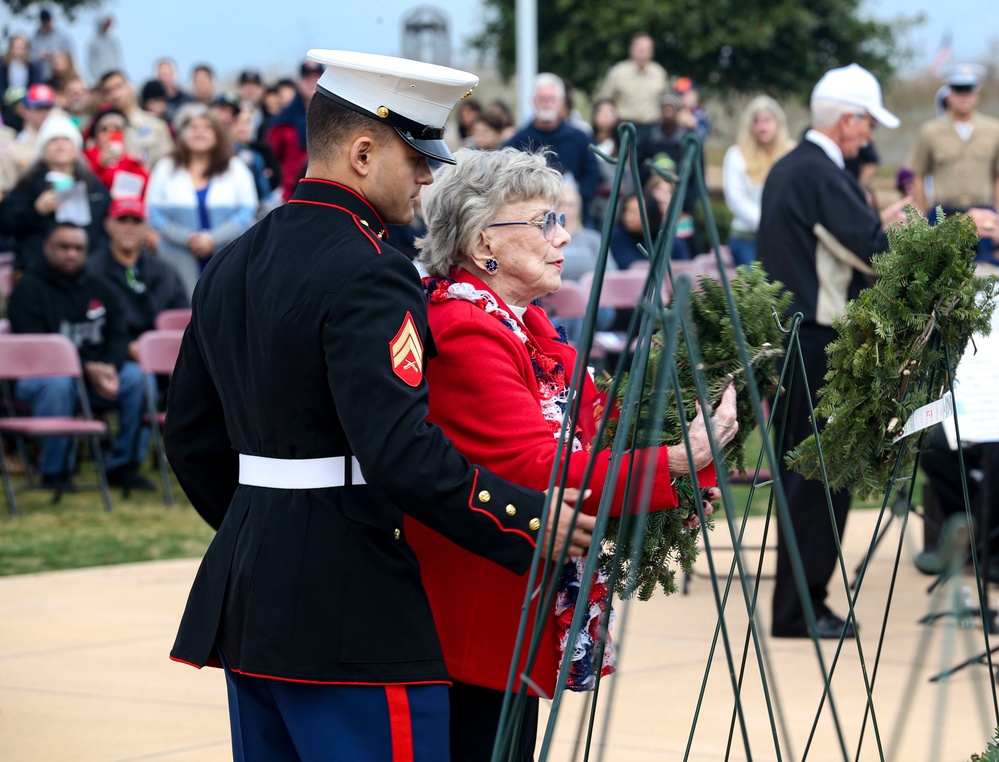
In 2019, Tidmore was asked by the Daughters of the American Revolution to place the memorial wreath at Miramar National Cemetery on Memorial Day. At the 2017 ceremony at the Veterans Museum, a rose bush was planted in memory of Rosie the Riveter. It took Tidmore back to where she was when she learned of the opportunity to join the Marine Corps. Rosie the Riveter. Everything had come full circle.
Randy now approaching 100 years young is still very active in her chapter, WMA CA-2 San Diego. She was nominated by Mani Santos, past chapter president for her dedication to life and her chapter. She embodies the spirit of being a Marine at all times.
CA-2 SAN DIEGO COUNTY chapter email: ca2@womenmarines.org
https://www.sandiegowomenmarines.org/
You can listen to her Oral History
